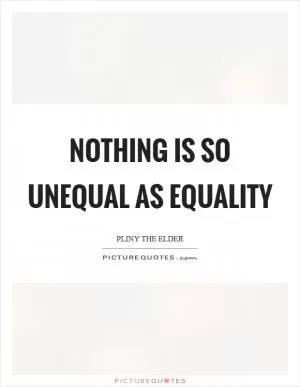
The enjoyments of this life are not equal to it's evils

The enjoyments of this life are not equal to it's evils
Pliny the Elder, a Roman author, naturalist, and philosopher, is known for his extensive writings on a wide range of topics, including history, science, and ethics. One of his famous quotes is, "The enjoyments of this life are not equal to its evils." This statement reflects Pliny's belief that the pleasures and joys of life are often overshadowed by the suffering and hardships that we experience.Pliny's observation is a timeless truth that resonates with people from all walks of life. In our modern world, we are constantly bombarded with messages that tell us to seek happiness and fulfillment through material possessions, success, and external validation. However, Pliny reminds us that these fleeting pleasures are not enough to outweigh the inevitable challenges and difficulties that we will face.
Pliny's words also serve as a reminder of the impermanence of life. No matter how much wealth, power, or success we may achieve, it can all be taken away in an instant. The joys of this world are temporary and fleeting, while the sorrows and hardships can leave a lasting impact on our lives.
Furthermore, Pliny's statement highlights the importance of perspective and gratitude. By acknowledging the inherent struggles and suffering in life, we can better appreciate the moments of joy and happiness that come our way. It is through experiencing pain and adversity that we can truly understand and appreciate the beauty and wonder of life.












 Friendship Quotes
Friendship Quotes Love Quotes
Love Quotes Life Quotes
Life Quotes Funny Quotes
Funny Quotes Motivational Quotes
Motivational Quotes Inspirational Quotes
Inspirational Quotes